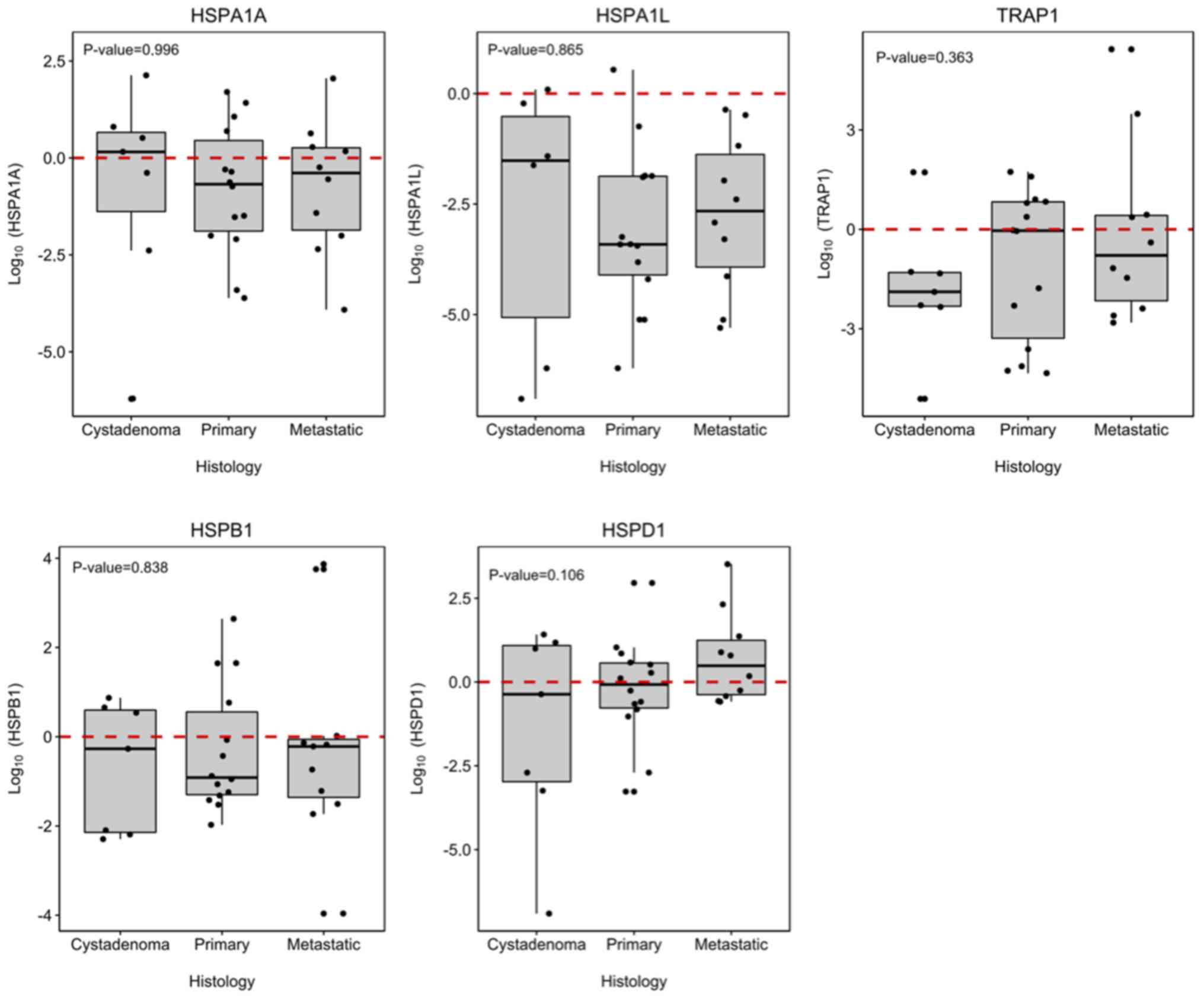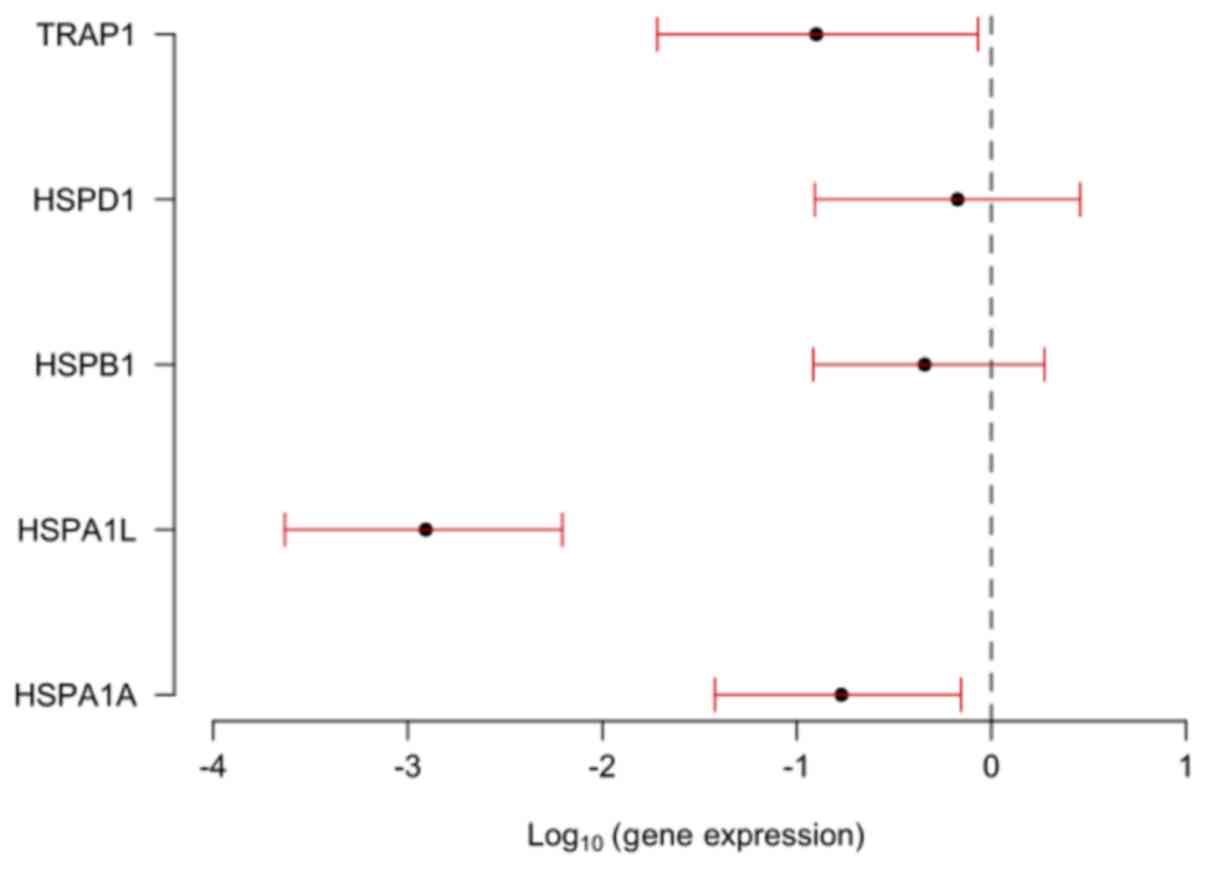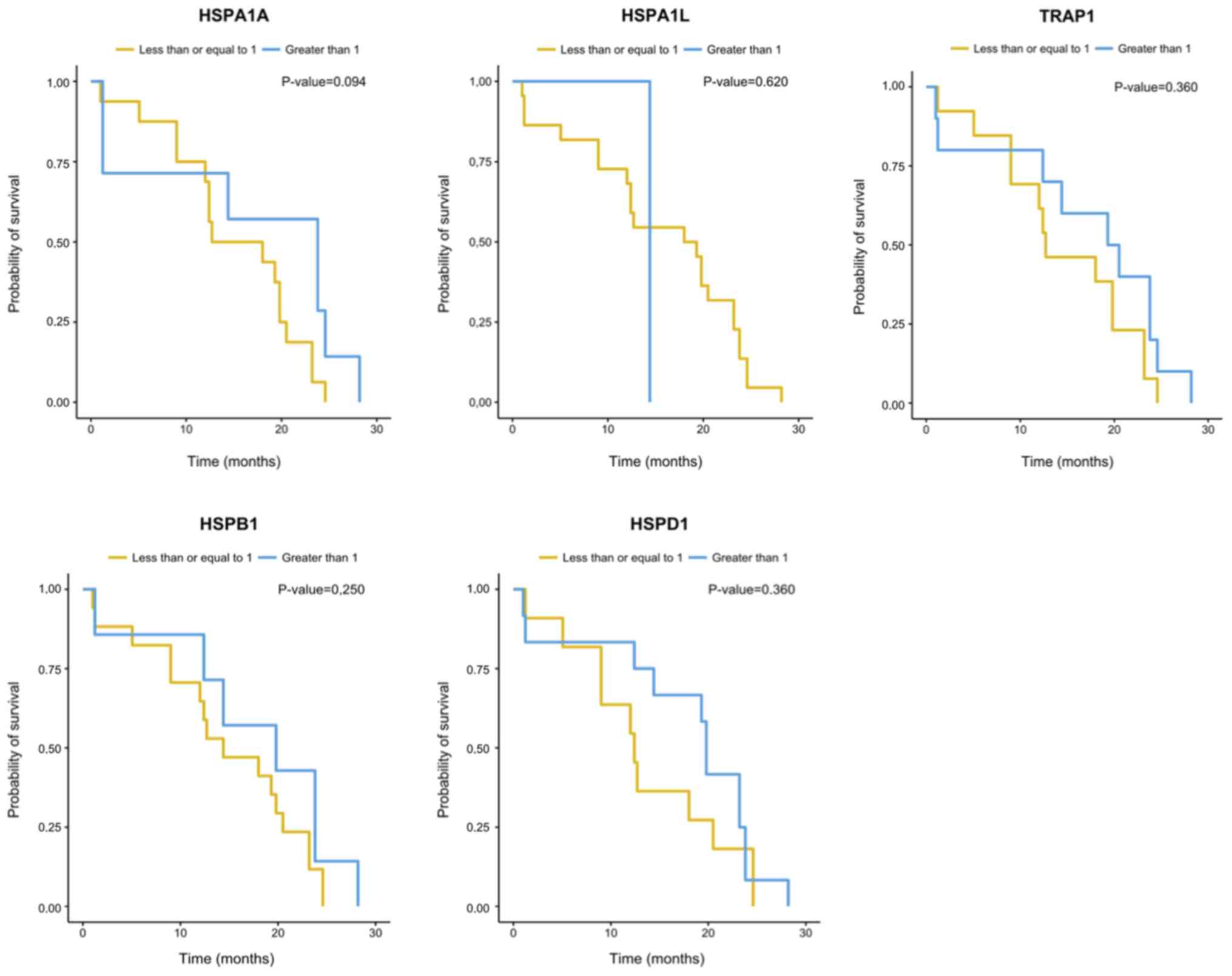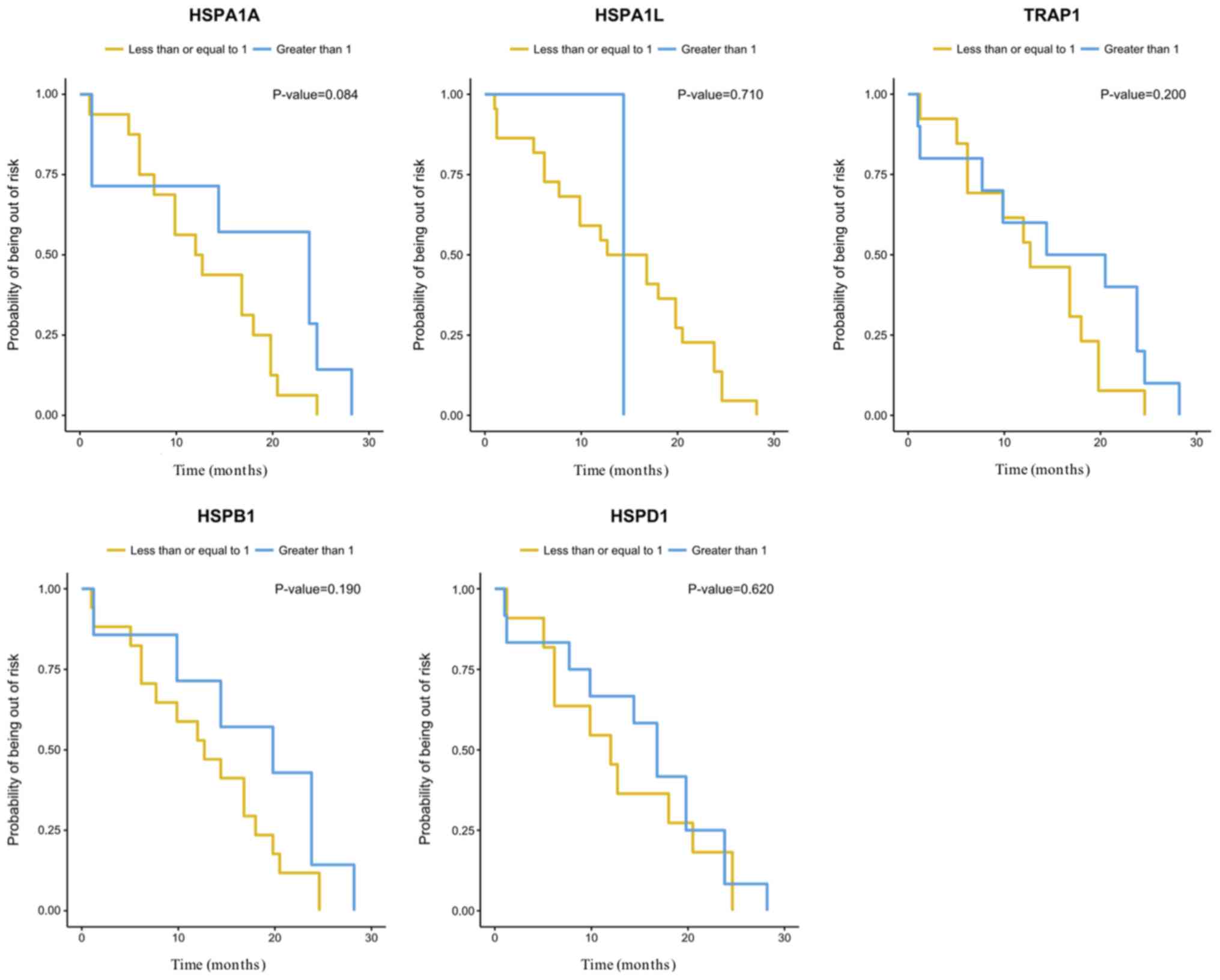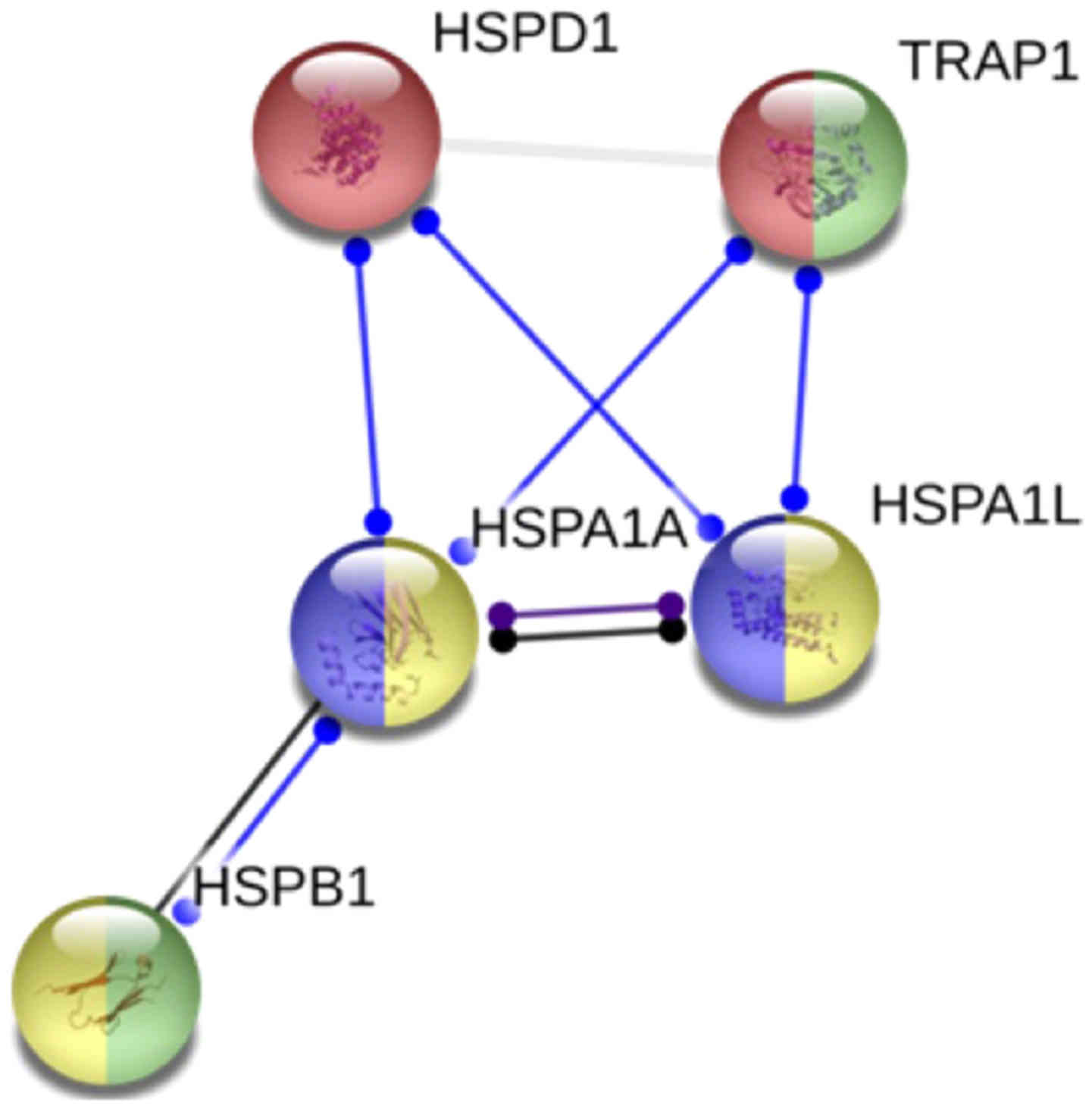|
1
|
Bray F, Ferlay J, Soerjomataram I, Siegel
RL, Torre LA and Jemal A: Global cancer statistics 2018: GLOBOCAN
estimates of incidence and mortality worldwide for 36 cancers in
185 countries. CA Cancer J Clin. 68:394–424. 2018. View Article : Google Scholar : PubMed/NCBI
|
|
2
|
Siegel RL, Miller KD and Jemal A: Cancer
statistics, 2016. CA Cancer J Clin. 66:7–30. 2016. View Article : Google Scholar : PubMed/NCBI
|
|
3
|
Corrado G, Salutari V, Palluzzi E,
Distefano MG, Scambia G and Ferrandina G: Optimizing treatment in
recurrent epithelial ovarian cancer. Expert Rev Anticancer Ther.
17:1147–1158. 2017. View Article : Google Scholar : PubMed/NCBI
|
|
4
|
du Bois A, Luck HJ, Meier W, Adams HP,
Möbus V, Costa S, Bauknecht T, Richter B, Warm M, Schröder W, et
al: A randomized clinical trial of cisplatin/paclitaxel versus
carboplatin/paclitaxel as first-line treatment of ovarian cancer. J
Natl Cancer Inst. 95:1320–1329. 2003. View Article : Google Scholar : PubMed/NCBI
|
|
5
|
Agarwal R and Kaye SB: Prognostic factors
in ovarian cancer: How close are we to a complete picture? Ann
Oncol. 16:4–6. 2005. View Article : Google Scholar : PubMed/NCBI
|
|
6
|
Wu J, Liu T, Rios Z, Mei Q, Lin X and Cao
S: Heat shock proteins and cancer. Trends Pharmacol Sci.
38:226–256. 2017. View Article : Google Scholar : PubMed/NCBI
|
|
7
|
Ciocca DR, Arrigo AP and Calderwood SK:
Heat shock proteins and heat shock factor 1 in carcinogenesis and
tumor development: An update. Arch Toxicol. 87:19–48. 2013.
View Article : Google Scholar : PubMed/NCBI
|
|
8
|
Song TF, Zhang ZF, Liu L, Yang T, Jiang J
and Li P: Small interfering RNA-mediated silencing of heat shock
protein 27 (HSP27) Increases chemosensitivity to paclitaxel by
increasing production of reactive oxygen species in human ovarian
cancer cells (HO8910). J Int Med Res. 37:1375–1388. 2009.
View Article : Google Scholar : PubMed/NCBI
|
|
9
|
Landriscina M, Amoroso MR, Piscazzi A and
Esposito F: Heat shock proteins, cell survival and drug resistance:
The mitochondrial chaperone TRAP1, a potential novel target for
ovarian cancer therapy. Gynecol Oncol. 117:177–182. 2010.
View Article : Google Scholar : PubMed/NCBI
|
|
10
|
Elstrand MB, Stavnes HT, Trope CG and
Davidson B: Heat shock protein 90 is a putative therapeutic target
in patients with recurrent advanced-stage ovarian carcinoma with
serous effusions. Hum Pathol. 43:529–535. 2012. View Article : Google Scholar : PubMed/NCBI
|
|
11
|
Zhao M, Ding JX, Zeng K, Zhao J, Shen F,
Yin YX and Chen Q: Heat shock protein 27: A potential biomarker of
peritoneal metastasis in epithelial ovarian cancer? Tumour Biol.
35:1051–1056. 2014. View Article : Google Scholar : PubMed/NCBI
|
|
12
|
Kim HS and Song YS: International
federation of gynecology and obstetrics (FIGO) staging system
revised: What should be considered critically for gynecologic
cancer? J Gynecol Oncol. 20:135–136. 2009. View Article : Google Scholar : PubMed/NCBI
|
|
13
|
Livak KJ and Schmittgen TD: Analysis of
relative gene expression data using real-time quantitative PCR and
the 2(-Delta Delta C(T)) method. Methods. 25:402–408. 2001.
View Article : Google Scholar : PubMed/NCBI
|
|
14
|
Szklarczyk D, Franceschini A, Wyder S,
Forslund K, Heller D, Huerta-Cepas J, Simonovic M, Roth A, Santos
A, Tsafou KP, et al: STRING v10: Protein-protein interaction
networks, integrated over the tree of life. Nucleic Acids Res. 43
(Database Issue):D447–D452. 2015. View Article : Google Scholar : PubMed/NCBI
|
|
15
|
Montgomery DC, Peck EA and Vining GG:
Introduction to linear regression analysis 5th editionJohn Wiley
& Sons; New York: 2012
|
|
16
|
Myles H and Wolfe DA: Nonparametric
Statistical MethodsJohn Wiley & Sons; New York: 1999
|
|
17
|
Colosimo EA and Giolo SR: ABE-Projeto
FisherEdgard Blücher; 2006
|
|
18
|
Kaplan EL and Meyer P: Nonparametric
estimation from incomplete observations. J Am Stat Assoc.
53:457–481. 1958. View Article : Google Scholar
|
|
19
|
R Core Team, . A language and environment
for statistical computingR Foundation for Statistical Computing;
Vienna: 2018
|
|
20
|
Therneau TM and Grambsch PM: Modeling
survival data: Extending the Cox ModelSpringer; New York, NY:
2000
|
|
21
|
Kurman RJ and Shih Ie M: The origin and
pathogenesis of epithelial ovarian cancer: A proposed unifying
theory. Am J Surg Pathol. 34:433–443. 2010. View Article : Google Scholar : PubMed/NCBI
|
|
22
|
Singh MK, Sharma B and Tiwari PK: The
small heat shock protein Hsp27: Present understanding and future
prospects. J Therm Biol. 69:149–154. 2017. View Article : Google Scholar : PubMed/NCBI
|
|
23
|
Amoroso MR, Matassa DS, Agliarulo I,
Avolio R, Lu H, Sisinni L, Lettini G, Gabra H, Landriscina M and
Esposito F: TRAP1 downregulation in human ovarian cancer enhances
invasion and epithelial-mesenchymal transition. Cell Death Dis.
7:e25222016. View Article : Google Scholar : PubMed/NCBI
|
|
24
|
Pfister K, Radons J, Busch R, Tidball JG,
Pfeifer M, Freitag L, Feldmann HJ, Milani V, Issels R and Multhoff
G: Patient survival by Hsp70 membrane phenotype: Association with
different routes of metastasis. Cancer. 110:926–935. 2007.
View Article : Google Scholar : PubMed/NCBI
|
|
25
|
Braga Lda C, Silva LM, Ramos AP, Piedade
JB, Vidigal PV, Traiman P and da Silva Filho AL: Single CpG island
methylation is not sufficient to maintain the silenced expression
of CASPASE-8 apoptosis-related gene among women with epithelial
ovarian cancer. Biomed Pharmacother. 68:87–91. 2014. View Article : Google Scholar : PubMed/NCBI
|
|
26
|
de Lima AB, Silva LM, Goncales NG,
Carvalho MRS, da Silva Filho AL and da Conceicao Braga L:
Three-dimensional cellular arrangement in epithelial ovarian cancer
cell lines TOV-21G and SKOV-3 is associated with apoptosis-related
miRNA expression modulation. Cancer Microenviron. 11:85–92. 2018.
View Article : Google Scholar : PubMed/NCBI
|
|
27
|
Arrigo AP and Gibert B: HspB1, HspB5 and
HspB4 in human cancers: Potent oncogenic role of some of their
client proteins. Cancers (Basel). 6:333–365. 2014. View Article : Google Scholar : PubMed/NCBI
|
|
28
|
Beere HM: Stressed to death: Regulation of
apoptotic signaling pathways by the heat shock proteins. Sci STKE.
2001:re12001.PubMed/NCBI
|
|
29
|
Khalil AA, Kabapy NF, Deraz SF and Smith
C: Heat shock proteins in oncology: Diagnostic biomarkers or
therapeutic targets? Biochim Biophys Acta. 1816:89–104.
2011.PubMed/NCBI
|
|
30
|
Wang X, Chen M, Zhou J and Zhang X: HSP27,
70 and 90, anti-apoptotic proteins, in clinical cancer therapy
(Review). Int J Oncol. 45:18–30. 2014. View Article : Google Scholar : PubMed/NCBI
|
|
31
|
Matassa DS, Amoroso MR, Maddalena F,
Landriscina M and Esposito F: New insights into TRAP1 pathway. Am J
Cancer Res. 2:235–248. 2012.PubMed/NCBI
|
|
32
|
Costantino E, Maddalena F, Calise S,
Piscazzi A, Tirino V, Fersini A, Ambrosi A, Neri V, Esposito F and
Landriscina M: TRAP1, a novel mitochondrial chaperone responsible
for multi-drug resistance and protection from apoptotis in human
colorectal carcinoma cells. Cancer Lett. 279:39–46. 2009.
View Article : Google Scholar : PubMed/NCBI
|
|
33
|
Aust S, Bachmayr-Heyda A, Pateisky P, Tong
D, Darb-Esfahani S, Denkert C, Chekerov R, Sehouli J, Mahner S, Van
Gorp T, et al: Role of TRAP1 and estrogen receptor alpha in
patients with ovarian cancer-a study of the OVCAD consortium. Mol
Cancer. 11:692012. View Article : Google Scholar : PubMed/NCBI
|
|
34
|
Han JJ, Baek SK, Lee JJ, Kim GY, Kim SY
and Lee SH: Combination of TRAP1 and ERCC1 expression predicts
clinical outcomes in metastatic colorectal cancer treated with
Oxaliplatin/5-Fluorouracil. Cancer Res Treat. 46:55–64. 2014.
View Article : Google Scholar : PubMed/NCBI
|
|
35
|
Cappello F, Di Stefano A, David S, Rappa
F, Anzalone R, La Rocca G, D'Anna SE, Magno F, Donner CF, Balbi B
and Zummo G: Hsp60 and Hsp10 down-regulation predicts bronchial
epithelial carcinogenesis in smokers with chronic obstructive
pulmonary disease. Cancer. 107:2417–2424. 2006. View Article : Google Scholar : PubMed/NCBI
|
|
36
|
Matassa DS, Amoroso MR, Lu H, Avolio R,
Arzeni D, Procaccini C, Faicchia D, Maddalena F, Simeon V,
Agliarulo I, et al: Oxidative metabolism drives
inflammation-induced platinum resistance in human ovarian cancer.
Cell Death Differ. 23:1542–1554. 2016. View Article : Google Scholar : PubMed/NCBI
|
|
37
|
Vidyasagar A, Wilson NA and Djamali A:
Heat shock protein 27 (HSP27): Biomarker of disease and therapeutic
target. Fibrogenesis Tissue Repair. 5:72012. View Article : Google Scholar : PubMed/NCBI
|
|
38
|
Elstrand MB, Kleinberg L, Kohn EC, Trope
CG and Davidson B: Expression and clinical role of antiapoptotic
proteins of the bag, heat shock, and Bcl-2 families in effusions,
primary tumors, and solid metastases in ovarian carcinoma. Int J
Gynecol Pathol. 28:211–221. 2009. View Article : Google Scholar : PubMed/NCBI
|
|
39
|
Langdon SP, Rabiasz GJ, Hirst GL, King RJ,
Hawkins RA, Smyth JF and Miller WR: Expression of the heat shock
protein HSP27 in human ovarian cancer. Clin Cancer Res.
1:1603–1609. 1995.PubMed/NCBI
|
|
40
|
Olejek A, Damasiewicz-Bodzek A, Bodzek P,
Wielkoszyński T, Zamłyński J, Stołtny P and Skutil M:
Concentrations of antibodies against heat shock protein 27 in the
sera of women with ovarian carcinoma. Int J Gynecol Cancer.
19:1516–1520. 2009. View Article : Google Scholar : PubMed/NCBI
|
|
41
|
Geisler JP, Tammela JE, Manahan KJ,
Geisler HE, Miller GA, Zhou Z and Wiemann MC: HSP27 in patients
with ovarian carcinoma: Still an independent prognostic indicator
at 60 months follow-up. Eur J Gynaecol Oncol. 25:165–168.
2004.PubMed/NCBI
|
|
42
|
Schneider J, Jimenez E, Marenbach K, Marx
D and Meden H: Co-expression of the MDR1 gene and HSP27 in human
ovarian cancer. Anticancer Res. 18:2967–2971. 1998.PubMed/NCBI
|















